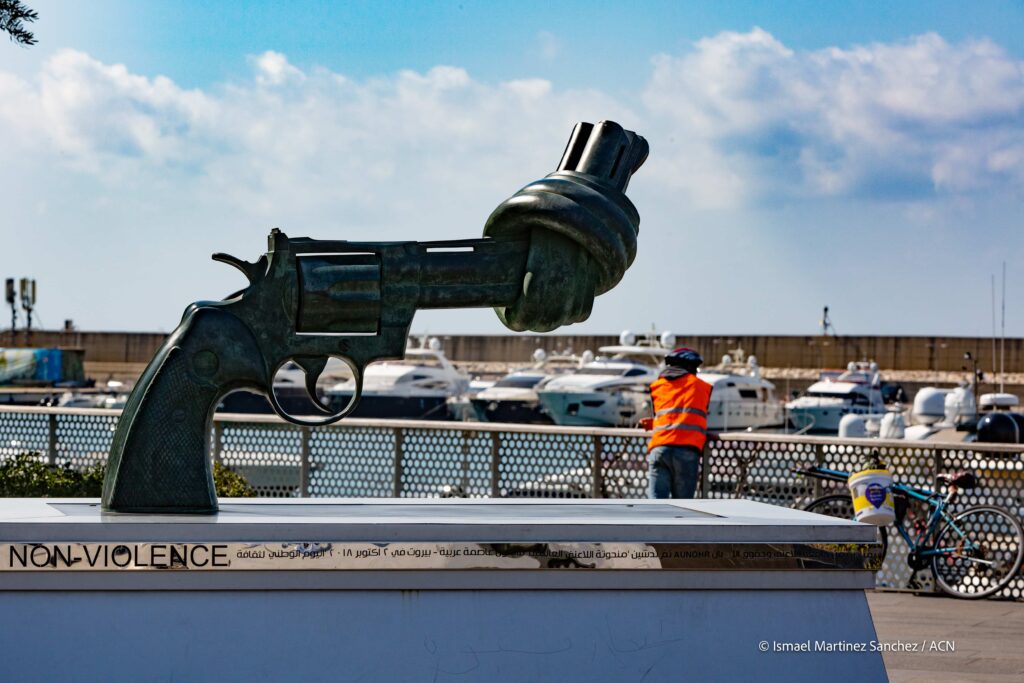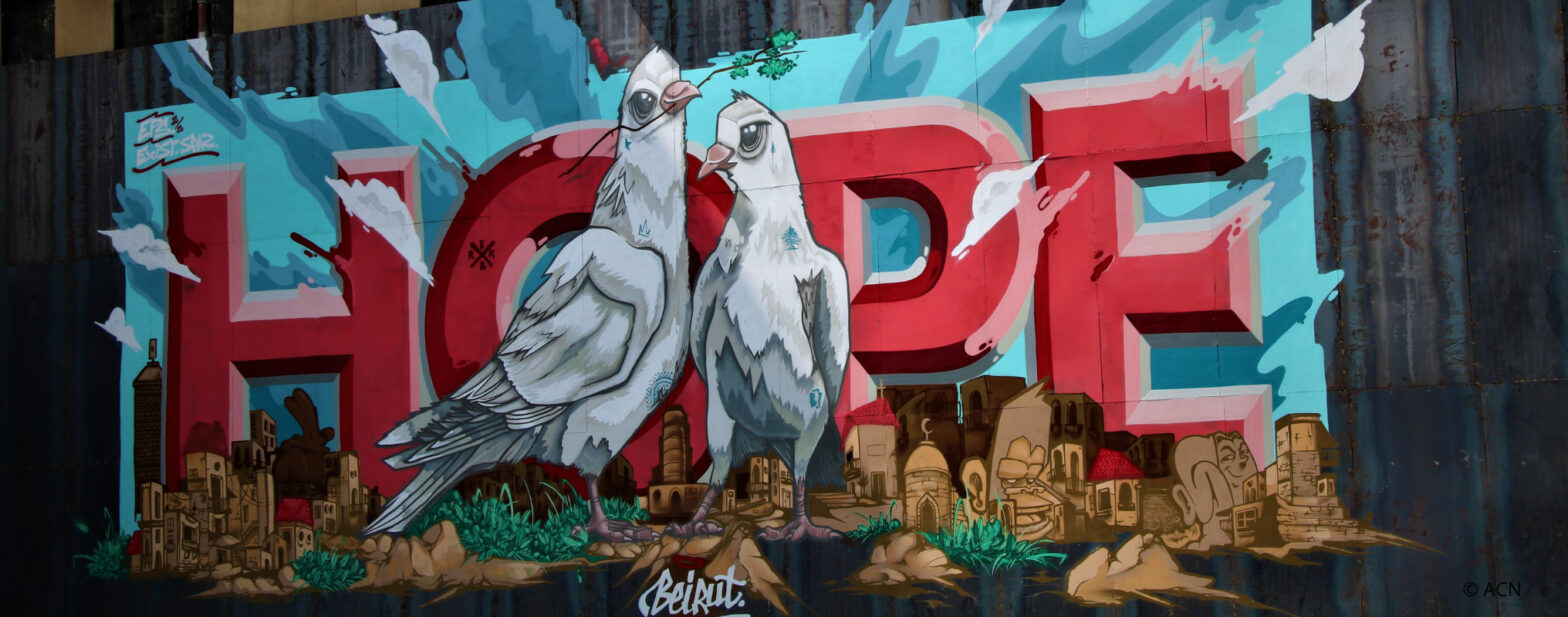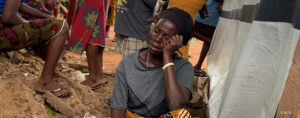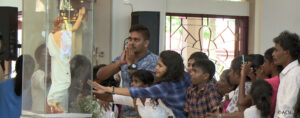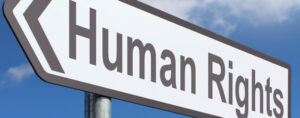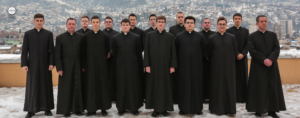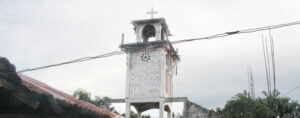Holy Land
Königstein, Germany/Montreal, Canada – One month after the terrible terrorist attacks by Hamas that led to war in Gaza, the Maronite archbishop of Tripoli, Lebanon, Msgr. Youssef Soueif, calls on the international community to urgently intervene to put an end to the devastating conflict.
During a recent visit to the international head office of Pontifical Charity Aid to the Church in Need (ACN), Archbishop Soueif stressed the need to find a just and lasting solution for communities in both Israel and Palestine, warning that otherwise, the conflict could drag on for decades, or even centuries, and threaten to trigger an open war throughout the region.
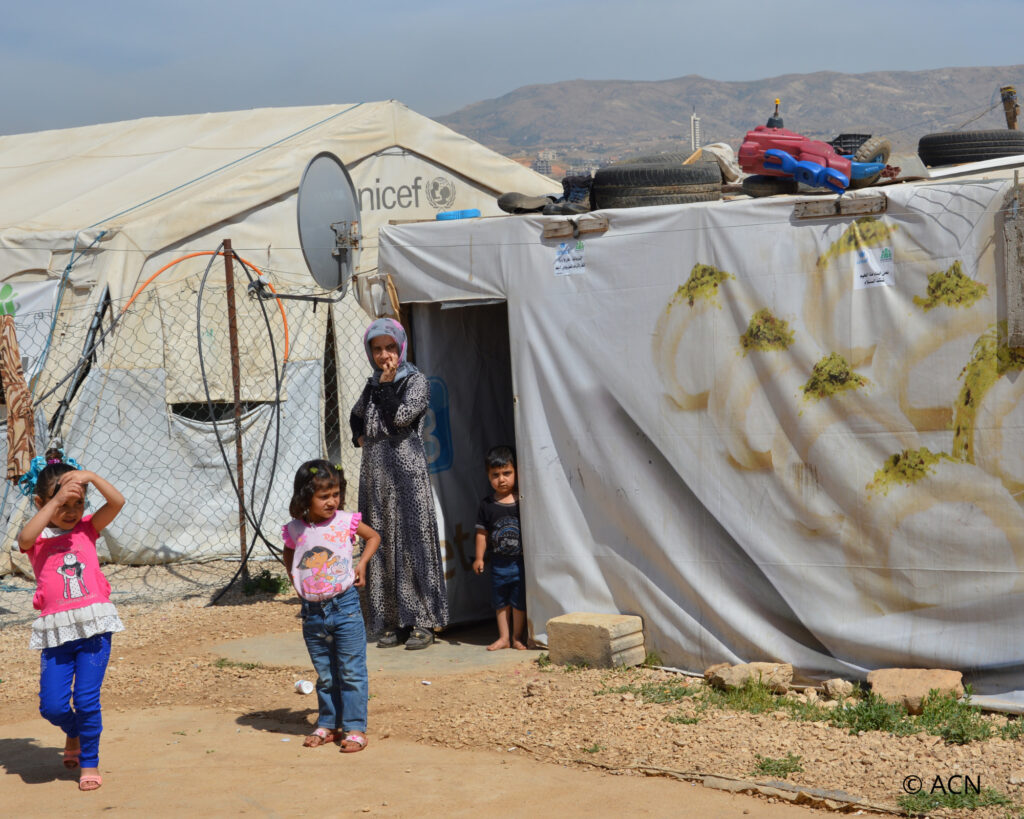
“Let it stop, let this war stop. Let it stop yesterday, before today,” said a sorrowful Archbishop Soueif. Speaking on a solution that allows for the coexistence of both communities in the region, he said, “The international community has an obligation to implement the two-state solution. If not, it will be an open conflict for decades, or centuries—with pauses, but an open war—because no one wants to leave their country and their land.”
During the conversation, the archbishop of Tripoli—the only predominantly Sunni region in Lebanon—expressed deep concern about the current situation and its impact on the entire Middle East. “We need the intervention of key actors with influence on both sides to stop the violence in Israel and Gaza. People are suffering terribly. And we are backtracking decades,” the religious leader added.
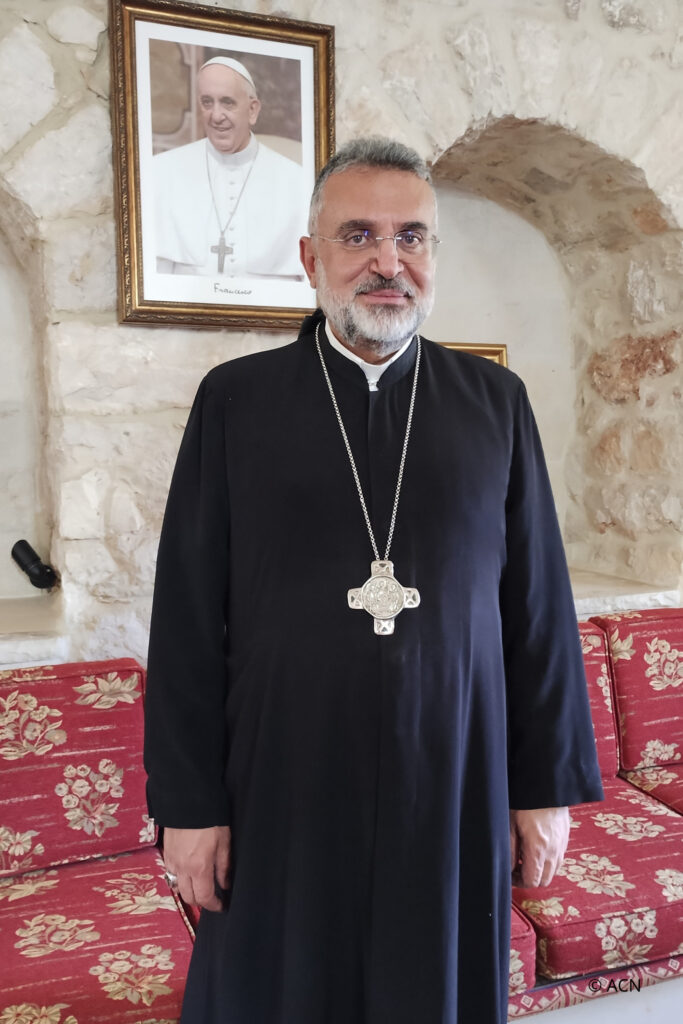
Lebanese people know all too well that violence is not a solution
Msgr. Soueif also highlighted the terrible psychological impact this situation is having on the Lebanese people, as well as the threat it poses to the stability of the country and the region as a whole.
“People are afraid, very afraid. At this moment, in Lebanon, there is no will for a war. We had 17 years of war, and people in my country know that violence is not a solution. So we hope there is no war. We hope for a diplomatic solution,” he said during the interview with ACN. “But we know that, in the end, in this geopolitical game, others will make the decisions,” he added.
In response to the repeated calls from Pope Francis for peace, the archbishop shared that all parishes and Catholic schools in his diocese are praying for the same intention and explained that he has been promoting interreligious initiatives with the Muslim leaders in his region, with whom he maintains a good relationship.
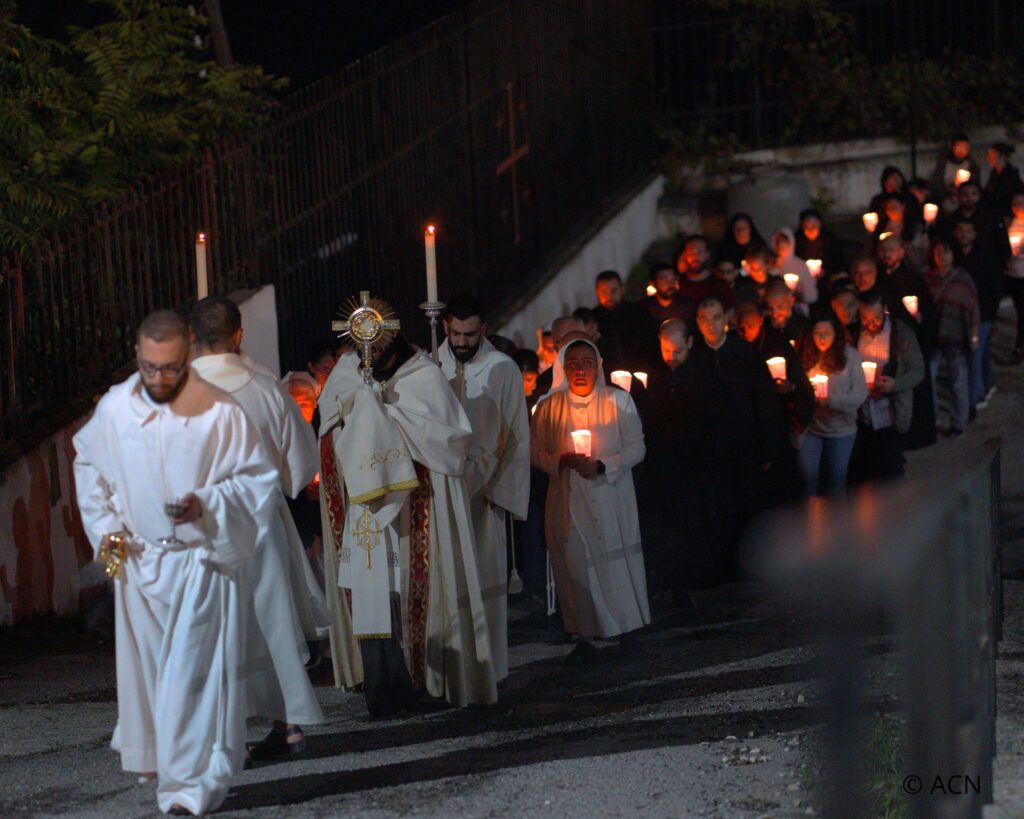
Help to sustain Lebanon
Finally, commenting on the written statements of the Middle Eastern bishops after the synod, in which they called on the international community to support Lebanon, which is facing an unprecedented economic and political crisis, the Maronite archbishop said: “We need to help keep Lebanon on its feet. We need to restore order and international confidence in this country. For that, we need elections. Currently, we have a prime minister, but there is no president, so the country is not functional. And that is very dangerous, not only for Lebanon, but for the entire region.”
Pointing to the fact that Lebanon has more refugees than Lebanese citizens, including 2.5 million Syrians and half a million Palestinians, the bishop concluded by reminding the world that “there is a huge danger of everything destabilizing. And the risk of mass migration could affect Europe if the crisis is not resolved.”
During this time of great need, ACN is committed to standing by the Church in Lebanon. In 2022, ACN funded 217 projects in the country. These included 76 emergency aid projects, 24 construction and reconstruction projects, Mass stipends for priests, and the formation of seminarians.
